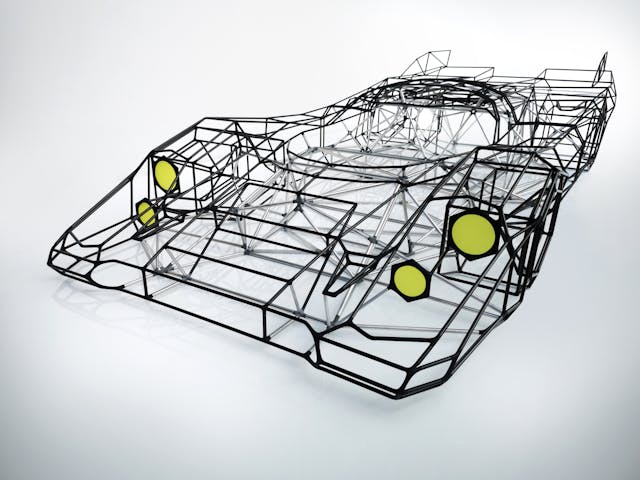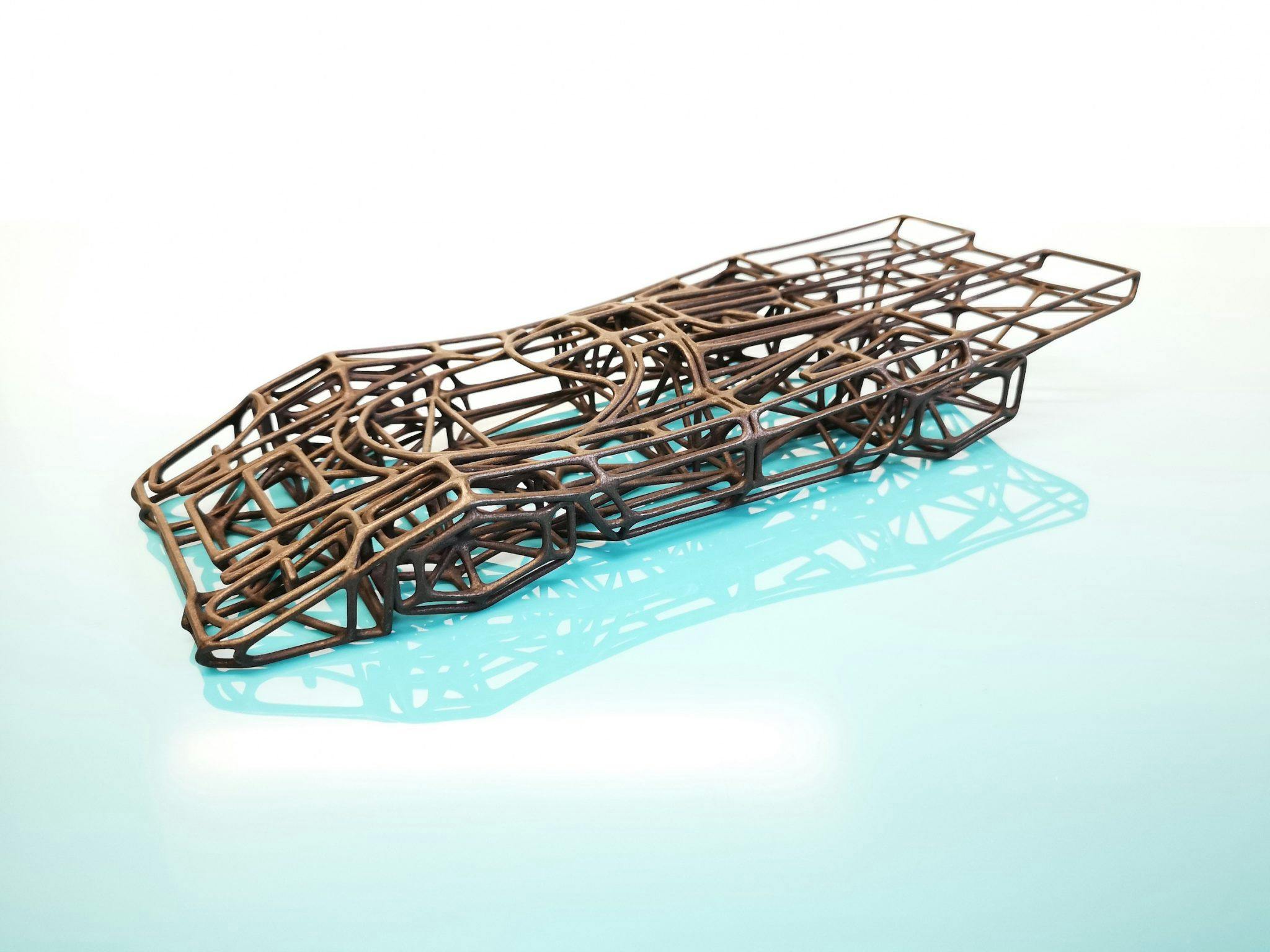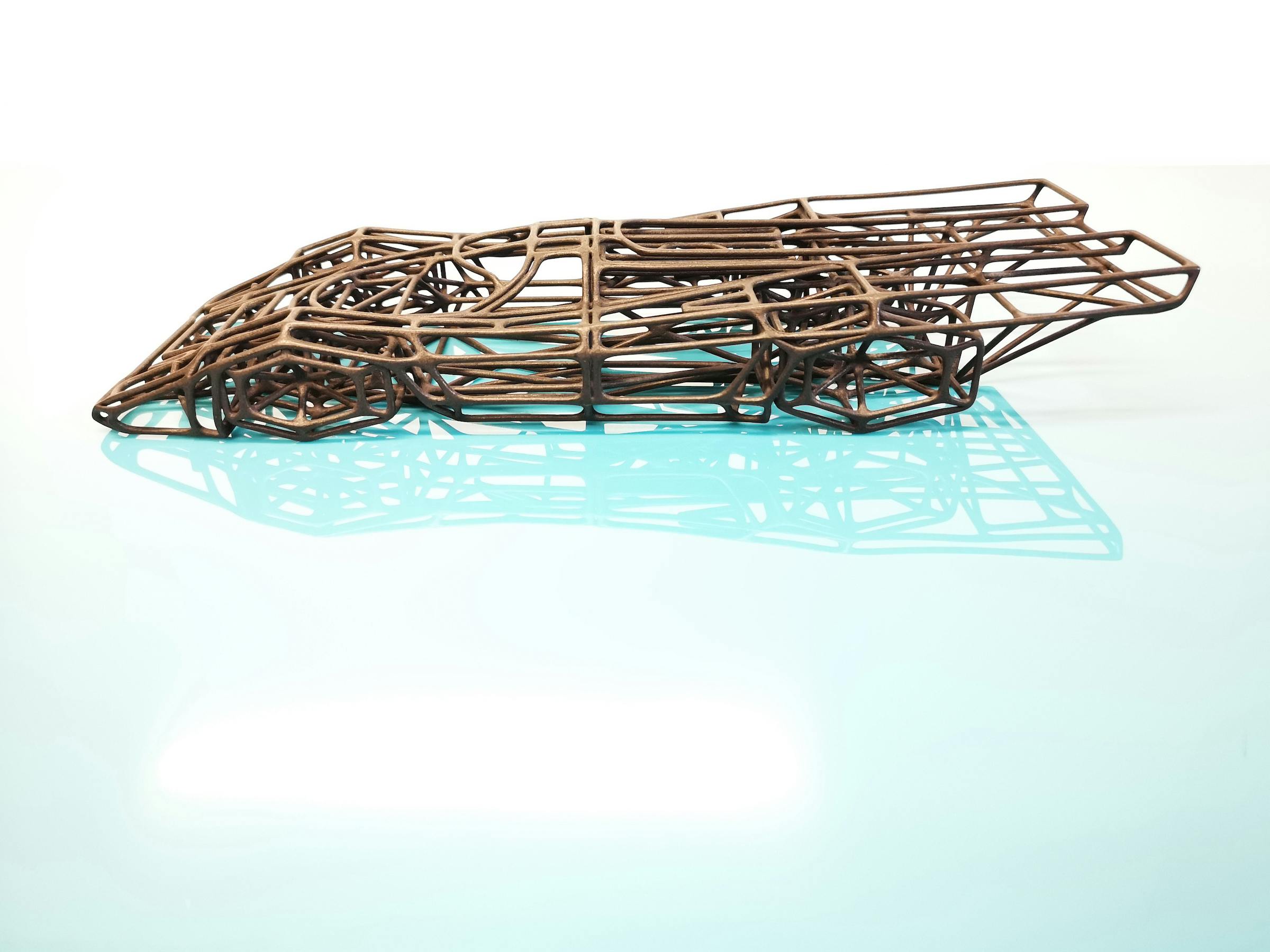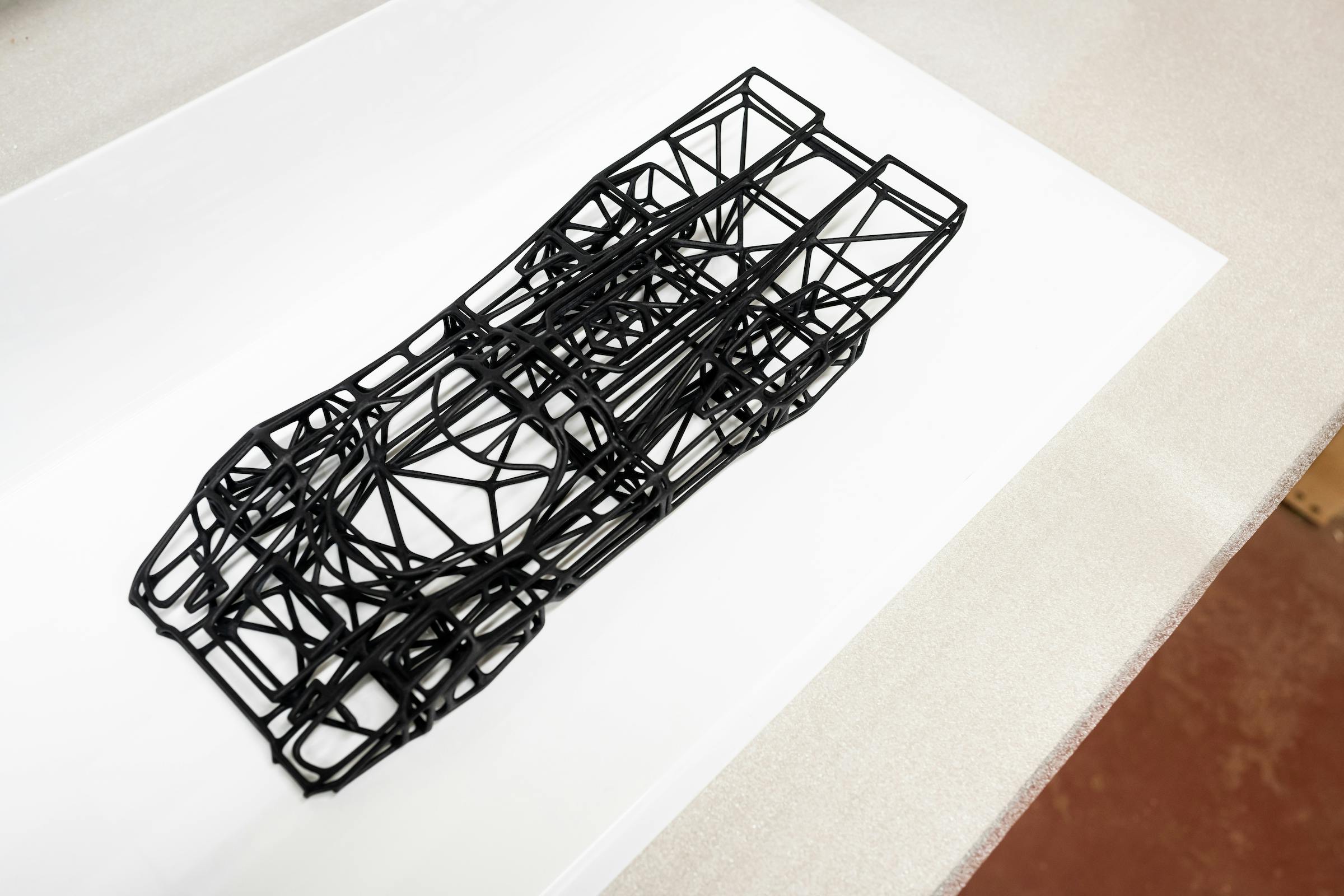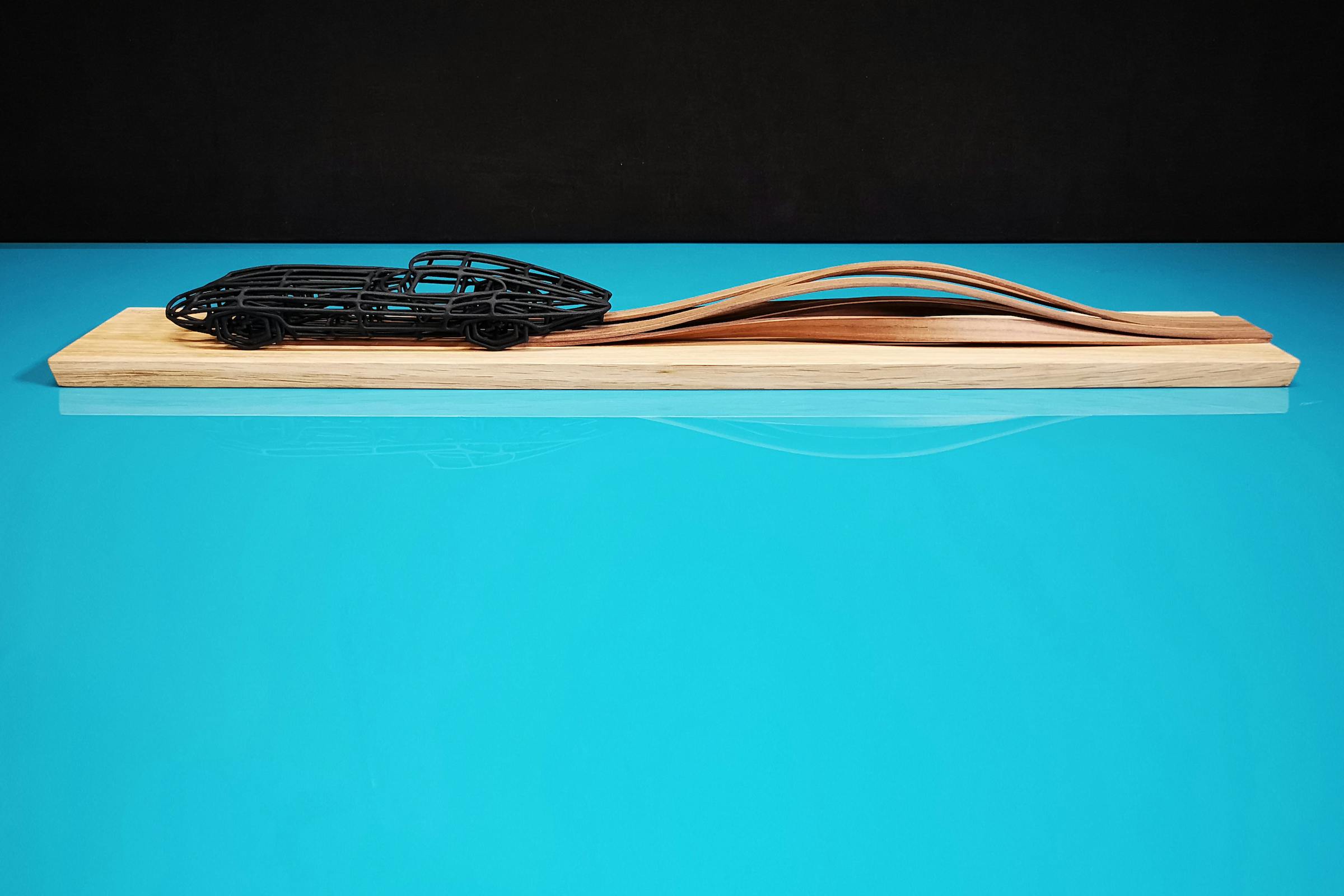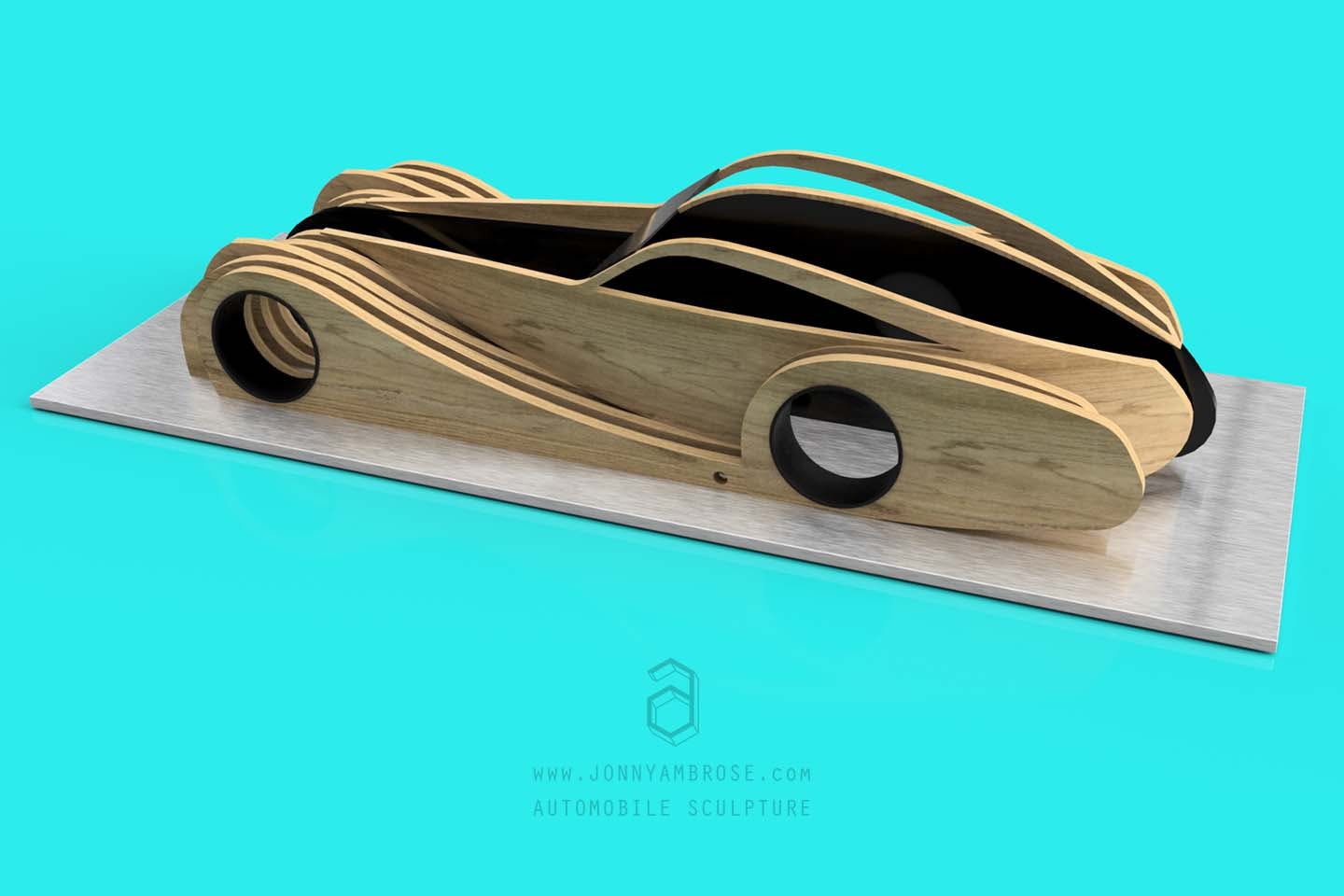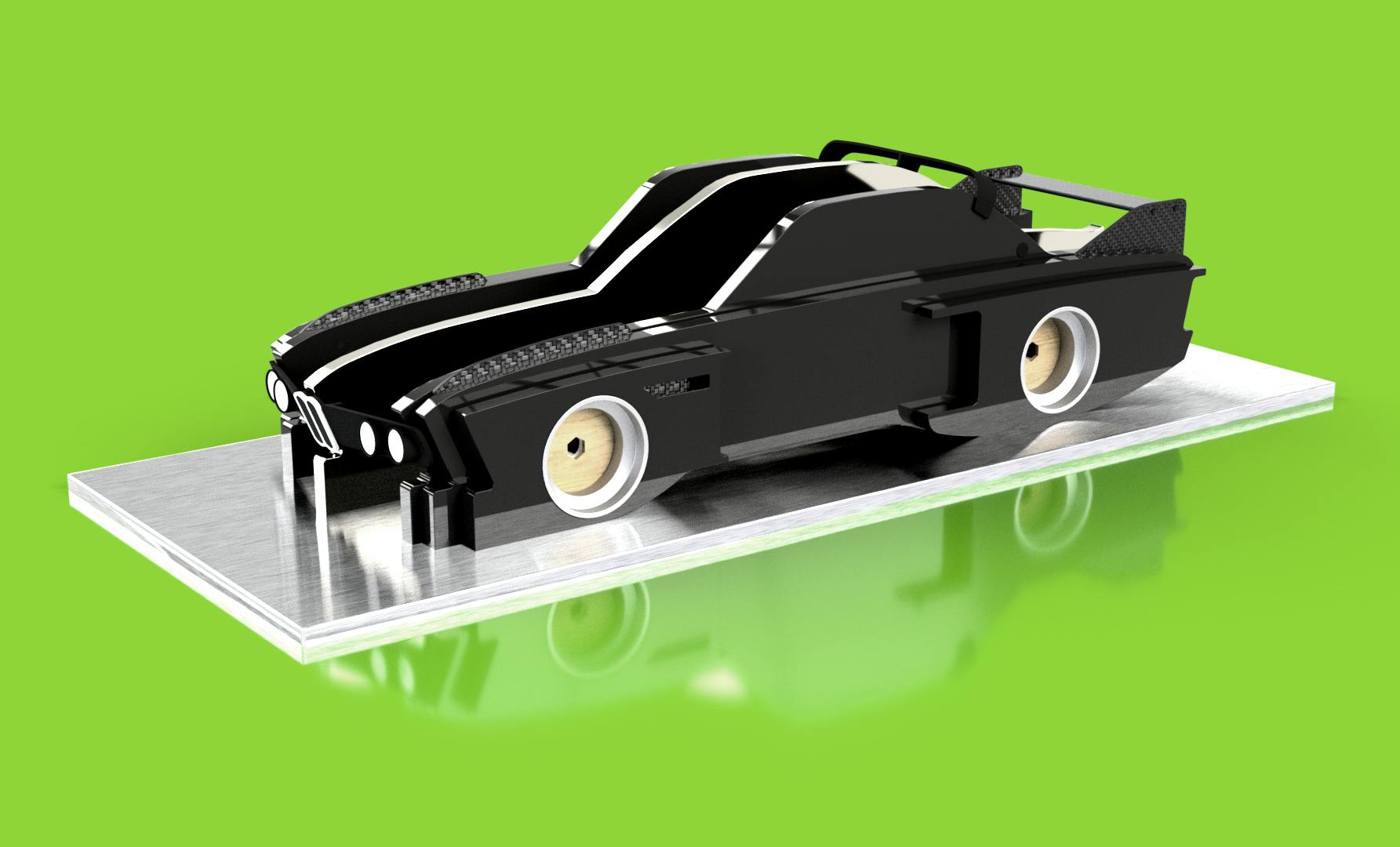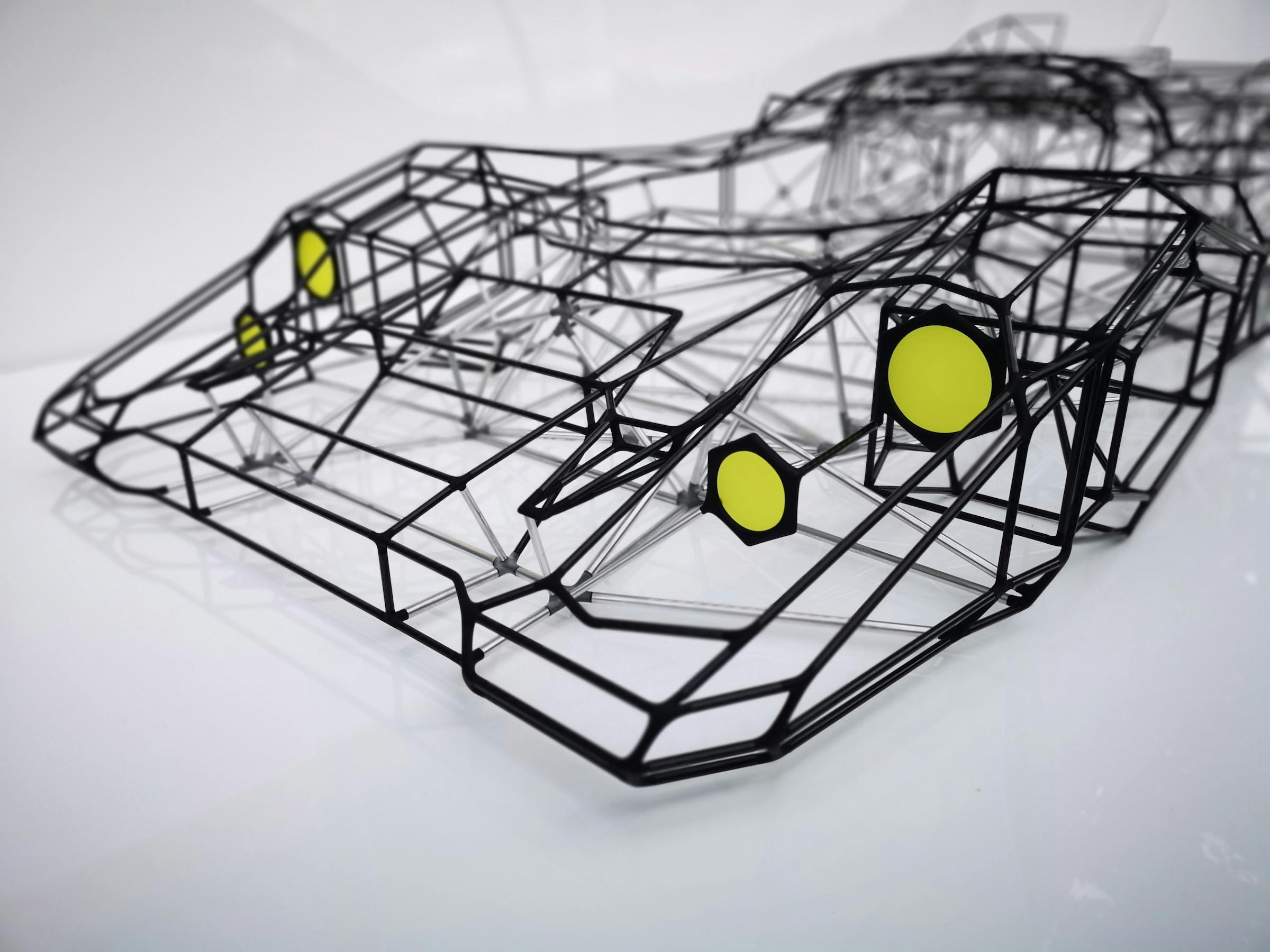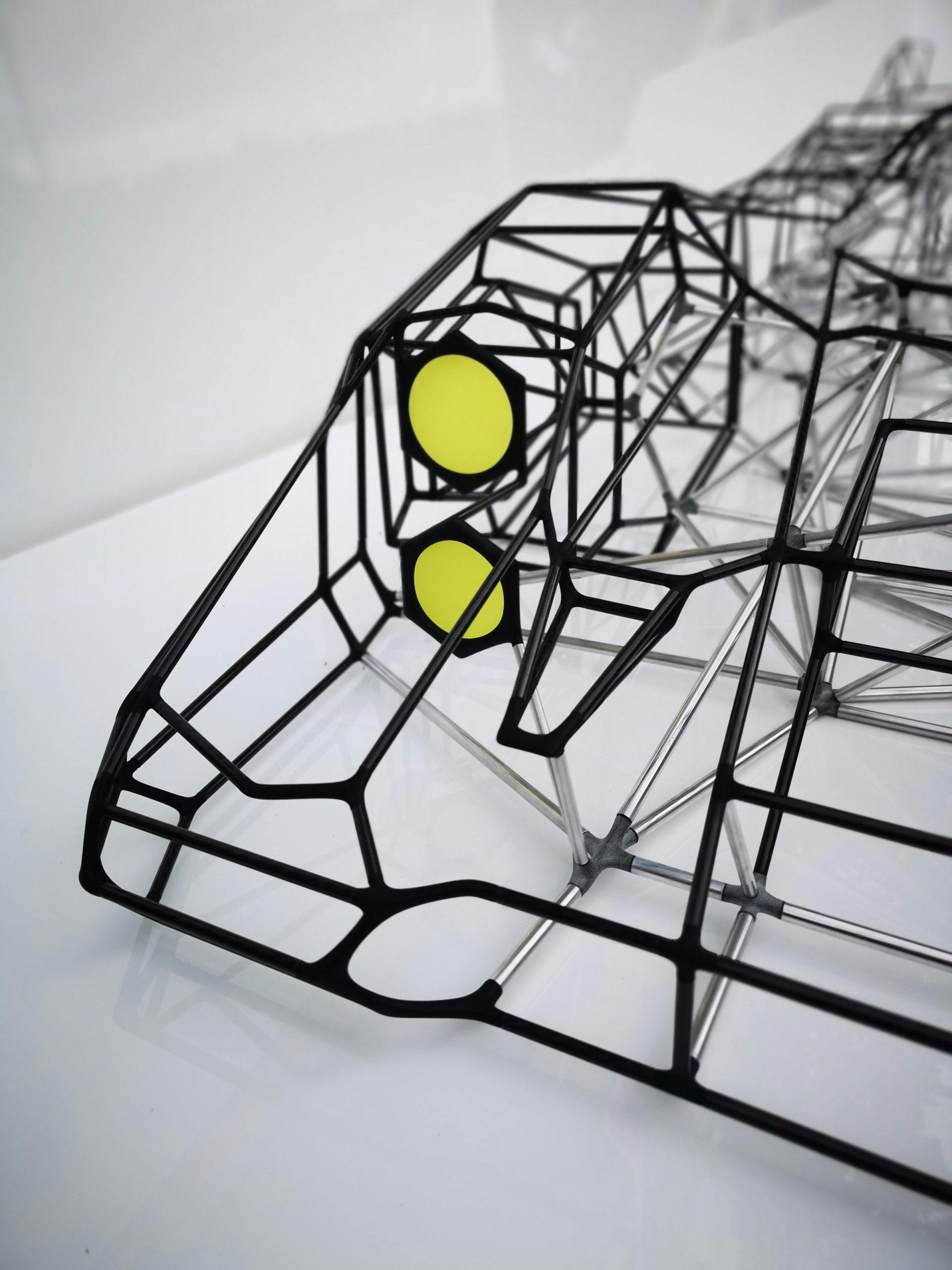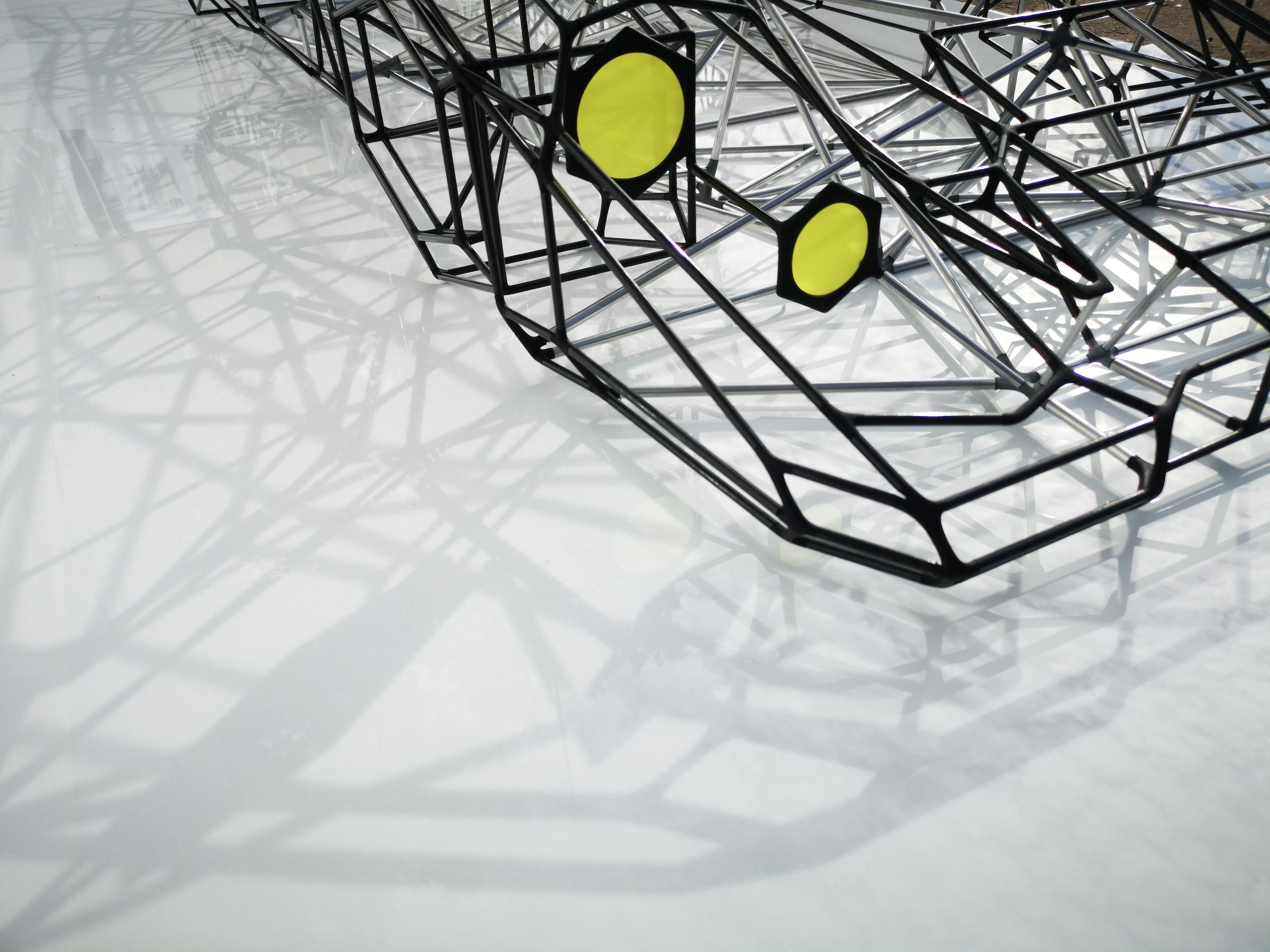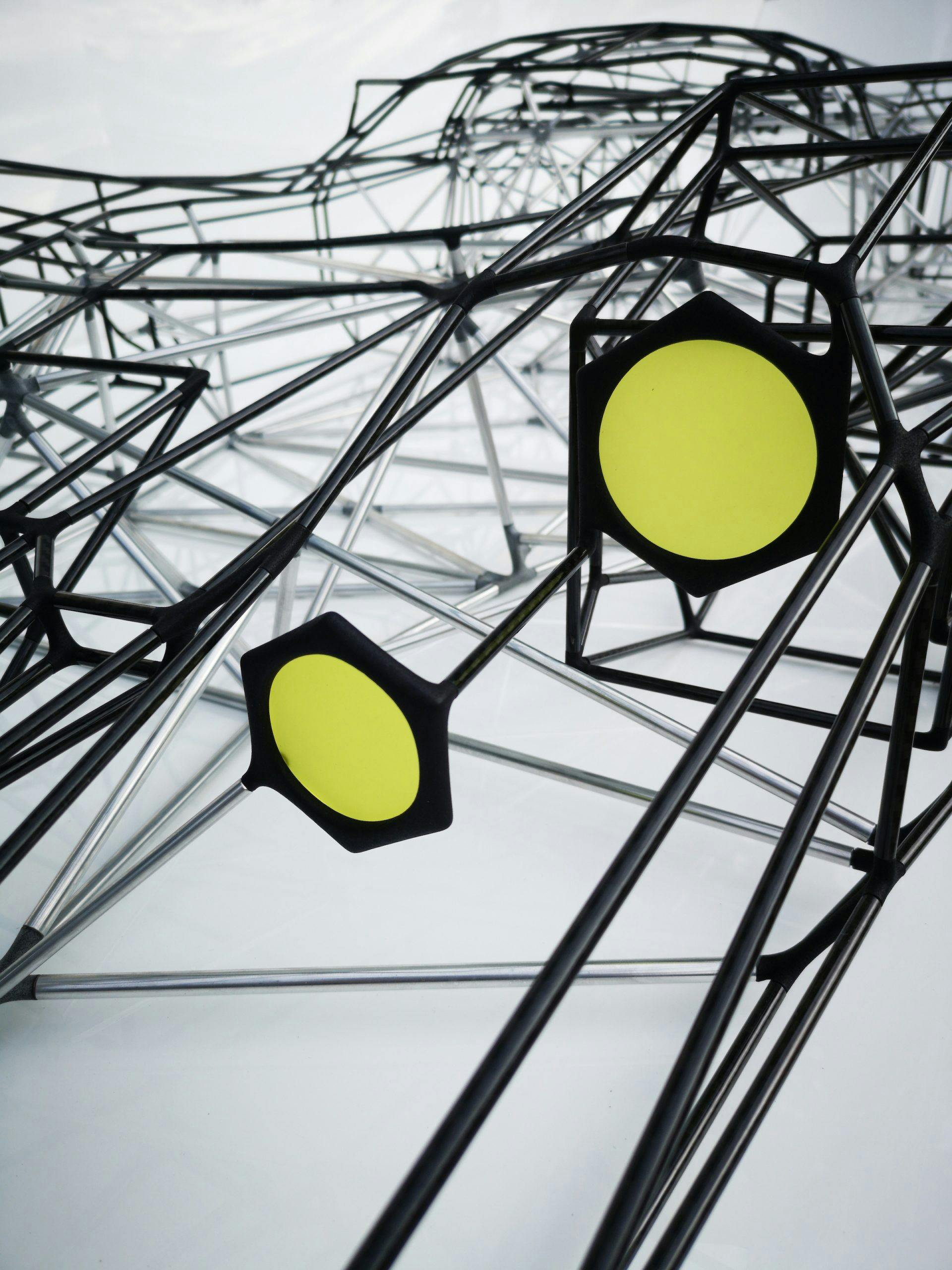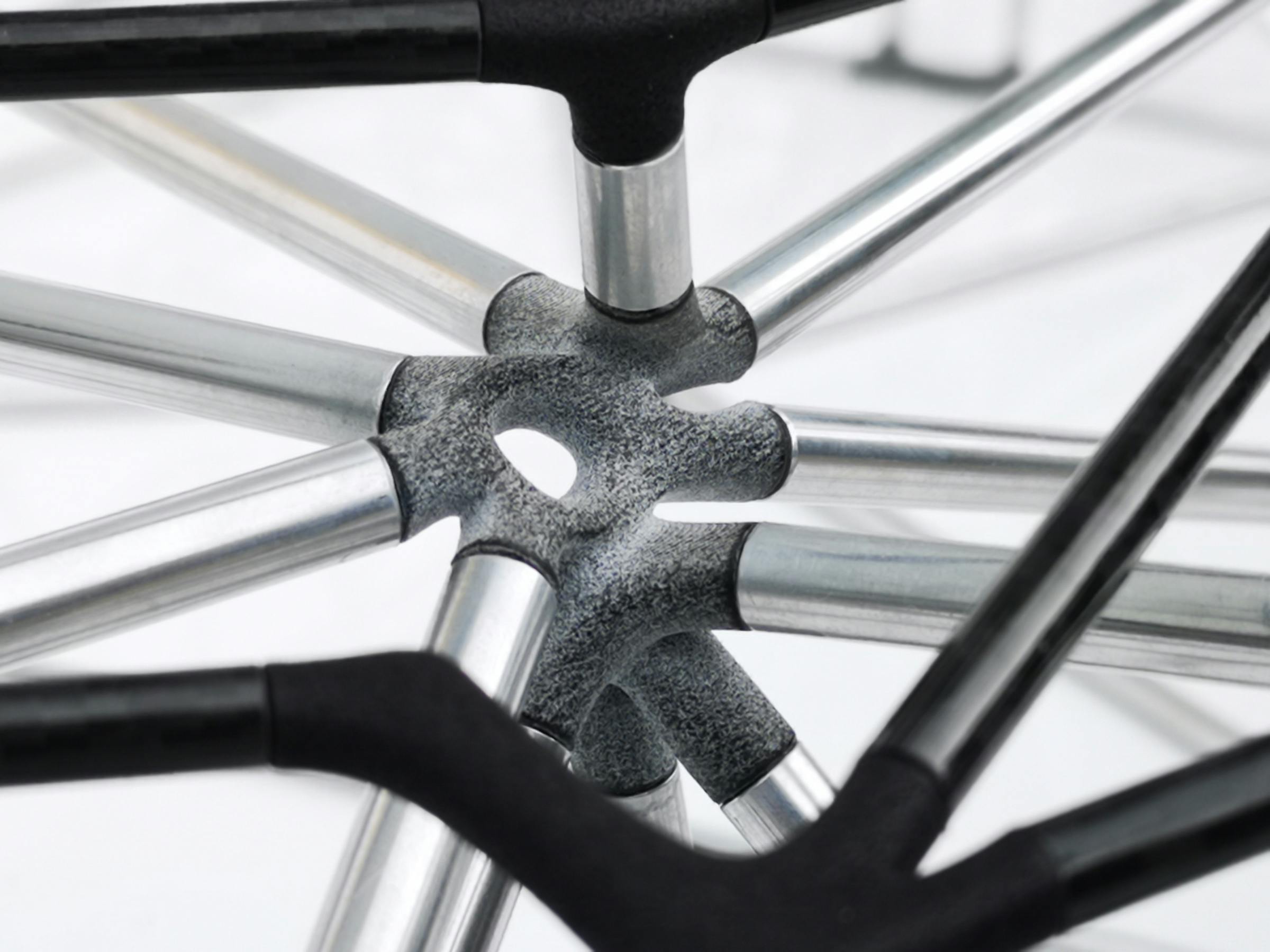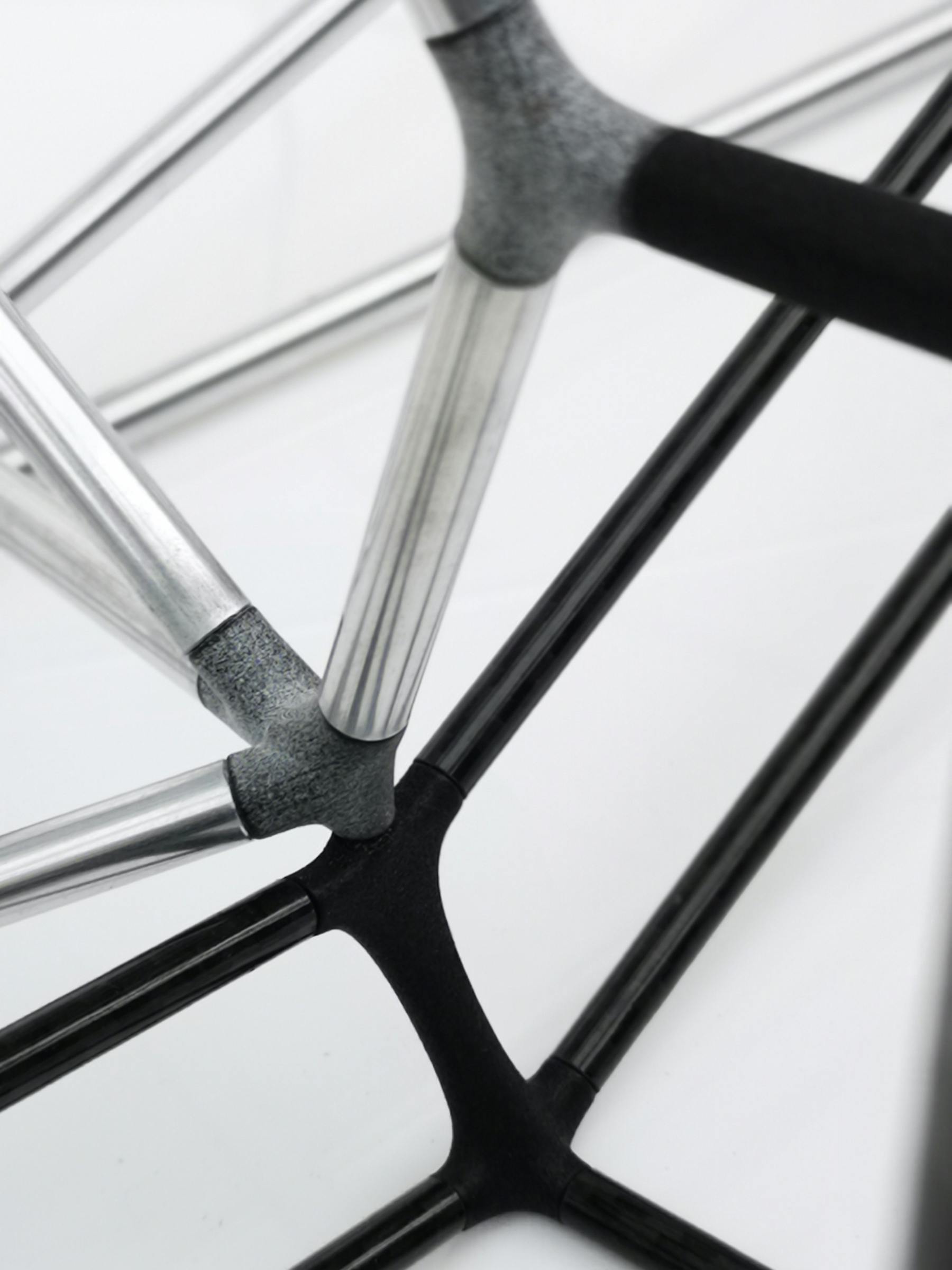Monster Maker: Jonny Ambrose is a skeletal car sculpture master
Fluorescent yellow and wide open, its black-rimmed eyes stare back at you. Deep-set within a hollow, skeletal body, are they glowing, or are they glaring? It’s up to you to decide. Nose to the ground with its shoulders hunched, this spineless creature is poised to make chase, but it can’t come and get you because it can’t even crawl. Sinister sounding, but magnificent looking, this imposing yet motionless monster is the devil you do know, reincarnated. This is Jonny Ambrose’s “Monster 917”; a two-and-a-half meter sculptural interpretation of the 1971 Le Mans-winning Porsche.
Elongated and polygonal in form, its bones are made from 1000 pieces of tubular carbon fibre and aluminum that have been connected using more than 250 individually CAD designed 3D-printed joints. Described as a “ridiculously complex” construction by artist Ambrose, “I wanted to create it, so I found a way to create it, that’s just how my mind works”, the piece, which sits stationary on hexagonal wheels, is inspired by what Ambrose refers to as the original Porsche 917’s secret advantage—its super lightweight spaceframe chassis. Built from small magnesium-alloy tubes it played on the strength of a triangle.
Once you’ve stopped fixating on the Monster’s eyes, your eyes will “read” the black, stylized carbon-fiber framework from front to rear fin before noticing the half scale inner aluminum chassis. What you won’t see, Ambrose discloses, is the 4-mm piece of hardwood he’s hidden inside one of the tubes. Its exact whereabouts, “I’m not going to ever divulge,” says Ambrose. “I was being playful, but I like to incorporate wood in all my sculptures, even if it is a very minor fraction.”
In the market for a Monster? You’ll be required to part ways with almost thirty eight thousand pounds, a steal in comparison to the tens of millions it’ll cost to buy the real deal, but a pipe dream for most. “Its size and sheer cost is for a very small part of the population,” acknowledges Ambrose, who has produced a limited-run coffee table alternative; the 40-cm 3D-printed Skeletale 917. At £1790 it’s lighter on the wallet and weighs just 1 pound. “Even the palm-sized sculptures are sold with a wooden plinth,” he says, keen to bring the conversation back to his fancy for timber.
Nephew of a wood turner, and grandson to a man who found great pleasure in spending weekends showing his protégé how to use hand tools in the spirit of make do and mend, “I realized quite early on that wood is a very versatile material that you can cut, change, shape and mould,” Ambrose made his first “rudimentary” car sculpture at play school. “I remember being let loose with hammers at nails at the age of four, you know, health and safety went out the window in those days. I like to think the three blocks of wood that I randomly nailed together resembled the Lotus 72 F1 car, but I’ve still got it, and looking at it now, it really doesn’t.”
At home, pencil in hand, his childhood happy place was sketching the quick and colorful cars he saw fighting for the podium during Formula 1 and Rallycross races being broadcast on terrestrial television—a Brabham BT44 was an exciting contrast to the brown and rather bland daily drivers typical of the seventies. “It was a visual overload, the small front wheels and huge back wheels on Formula 1 cars create a really raw, extreme shape that just shouts power and speed. I was, and still am, fascinated by their form.”
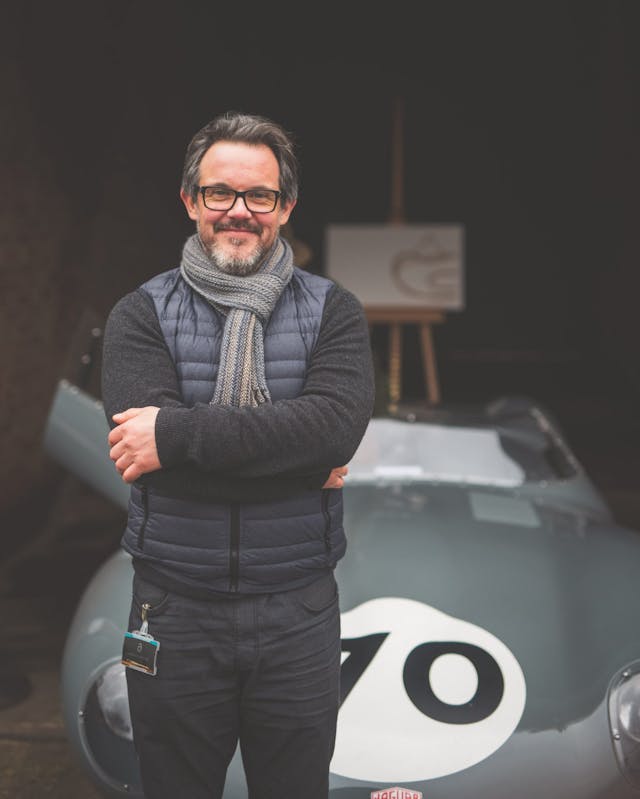
Ambrose’s first “proper” wooden car sculpture, with roll cage, came to fruition in a design technology class at the age of ten. After sixth form, “university seemed the obvious step”, and he obtained a degree in Fine Art, but “making a living out of the way you express yourself creatively” hadn’t been part of the curriculum and as someone who has a tendency to be quite insular, Ambrose, like many artists, struggled to kept the wolf from the door. To cover costs, he spent many successful years designing and developing computer games before committing his undivided attention to creating automotive works of art.
The culmination of this potted history was the birth of Monster 917’s older sibling in 2017, a one of one wooden sculpture named Le Mans Langheck, meaning long tail in German. Inspired by the same iconic car yet incomparable in form and composition—“a lot of artists are known for their one particular style, but for me it’s all about experimenting, I never want to become pigeonholed”—it is one of the first works he produced after going full-time, and technically, one of his finest.
A streamlined composition of chromed steel, reclaimed Iroko hardwood and sustainably sourced English oak, it was a manifestation of Ambrose’s fascination with the aerodynamics of automotive design. Making the invisible, visible, he meticulously manipulated a single sheet of wood that rests on the top of the car to represent the airflow that rushes up, flows over and swirls away from a Porsche 917’s body when traveling at speed.
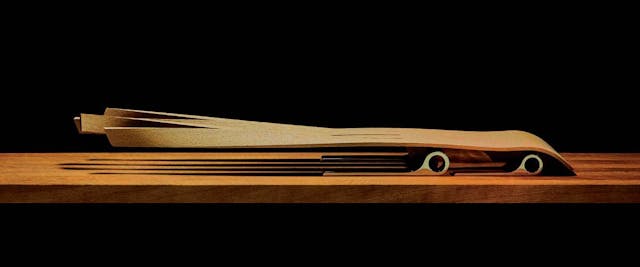
“It took a lot of effort and head scratching,” he says. “Of all the materials I use, working with wood is the most enjoyable, but it’s got a life of its own. It’s a natural material and as you cut, plain or bend it, the vagaries of its grain mean that it only takes a nick here or there, for a piece to no longer work. There’s no undo button so it can be a pleasure, but also a pain.”
Consequently, a single wooden element can go through three or four iterations before perfection is achieved, and the Le Mans Langheck’s imagined airflow adornment proved one of the trickiest. “When steam bending you design a jig to clamp the piece whilst it’s still hot and pliable, but you have to work quickly. The Langheck’s airflow feature had several difficult twists in its tail, but the hardest part was creating the bend in the wood that sweeps over the 917’s nose—all the while working against the grain.”
Working in 3D, says Ambrose, lends itself to making extraordinary vehicles, from the BMW Batmobile to the Morgan Aeromax, Lamborghini Diablo, Bugatti Atlantic, and the Formula E Gen 2 EVO car, appear even more extraordinary. The skill lies in making sure the overall form is recognizable and the magic lies in the illusion; circumnavigate the Monster 917, and the lines parallax against one another to create new, intriguing angles and formations.
Ideas will often arrive in the dead of night, so Ambrose has become accustomed to sleeping with a notepad at his bedside. Scribbled through bleary eyes, in daylight they can sometimes be difficult to decipher, but it’s when he begins exploring them digitally, that concepts resurface and evolve. “Using 3D modeling software, I’ll get the form together quite quickly and play around with the proportions, but then comes the practical part of designing the components and how they will fit together within the limits of the materials I plan to work with.”
To maintain good housekeeping, Ambrose tidies his various sculptural styles into series, including Aerodynamic, Airflow, and Streamlined, but his workshop is a maker’s haven of organized chaos. An eclectic hoard of materials, including rare hardwood offcuts, await their fate with Ambrose’s saws, drills and finishing machines (the metalwork and 3D printing is done off-site) but when the lights go off at the end of each day they disappear into the shadows. Only the eyes of Ambrose’s sleepless Monster glow in the dark.
